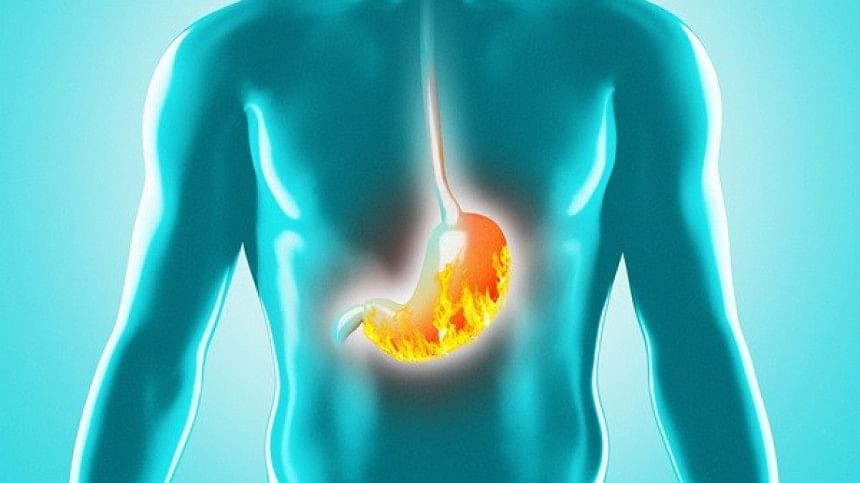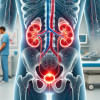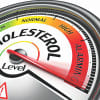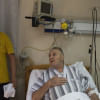All you need to know about peptic ulcer: Causes, symptoms, and treatment

The causes of what we commonly identify as 'gastric' starts off small — from snacking on our favourite dairy-based dessert, or taking a smoke break immediately after wolfing down fried foods, the triggers are aplenty. To think that a sudden case of gas and acid reflux will not set us back for a lifetime would be a wrong idea. It is only a matter of time that the minor heartburn becomes a major obstacle to living a healthy life. It is not entirely impossible to curb gastrointestinal maladies, but in order to do so it is essential to get to the root of the cause while also making some major changes to one's lifestyle.
Peptic ulcer diseases
According to Dr Md Rubel Miah, Consultant, Medicine, Sadar Hospital, Lalmonirhat, Peptic-ulcer diseases are common among Bangladeshis. There is also a large number of people suffering from stomach and colon cancer, as well as chronic hepatitis, fatty liver, and pancreatitis.
"Peptic ulcer diseases commonly known as 'gastric' are caused by an infectious bacteria known as helicobacter pylori. It is also related to some risk factors such as smoking, consuming alcohol, and taking aspirin/painkillers, steroids," he explains. Helicobacter pylori also contribute to the development of gastric cancer. Instances of cancer are more common in patients who are 45 or 50 years of age," says Dr Miah.
Since lifestyle is a contributing factor to peptic ulcer diseases, smokers are known to develop this more frequently.
"Those who are taking certain medications such as painkillers or steroids are more prone to developing these conditions; additionally smoked, salted, and pickled foods increase the risk of gastric cancer," he added.
People with peptic ulcer diseases often suffer from upper abdominal pain/discomfort, postprandial fullness i.e., fullness felt after consuming regular meals, belching, bloating after eating, and vomiting. Where treatment provisions are concerned, it is essential for people to get tests done if consistent symptoms prevail. In order to eradicate helicobacter pylori, there are many treatment regimens available.
"The most convenient and reliable test is an upper gastrointestinal endoscopy to understand if a person has an erosion, ulcer, or if it's turned into cancer or not. Endoscopy is an affordable diagnostic procedure at any government hospital. If detected in its early stages, it's possible to cure the patient up to 90-95 per cent unless there is any antibiotic resistance," reassures Dr Md Rubel Miah.
Dr Miah explains that peptic ulcer diseases start off with an erosion, then become an ulcer and complications develop if left untreated for a longer period. As a part of lifestyle changes, people need to avoid smoking and drinking alcohol.
"They also need to reduce their intake of painkillers or steroids and if they are taking such medications, co-prescription of proton pump inhibitors such as omeprazole, esomeprazole, or pantoprazole is required to protect their gastrointestinal tract. Additionally, antacids and sucralfate medications are necessary for coating ulcers to give patients a soothing effect."
Dr Md Rubel also recommends the 'triple-therapy' for peptic ulcer diseases, which consists of two antibiotics and a proton pump inhibitor like omeprazole to combat helicobacter pylori. Moreover, family members need to encourage patients to give up smoking, drinking alcohol, or having fried foods as these hinder them from leading a healthy lifestyle.

 For all latest news, follow The Daily Star's Google News channel.
For all latest news, follow The Daily Star's Google News channel. 







Comments